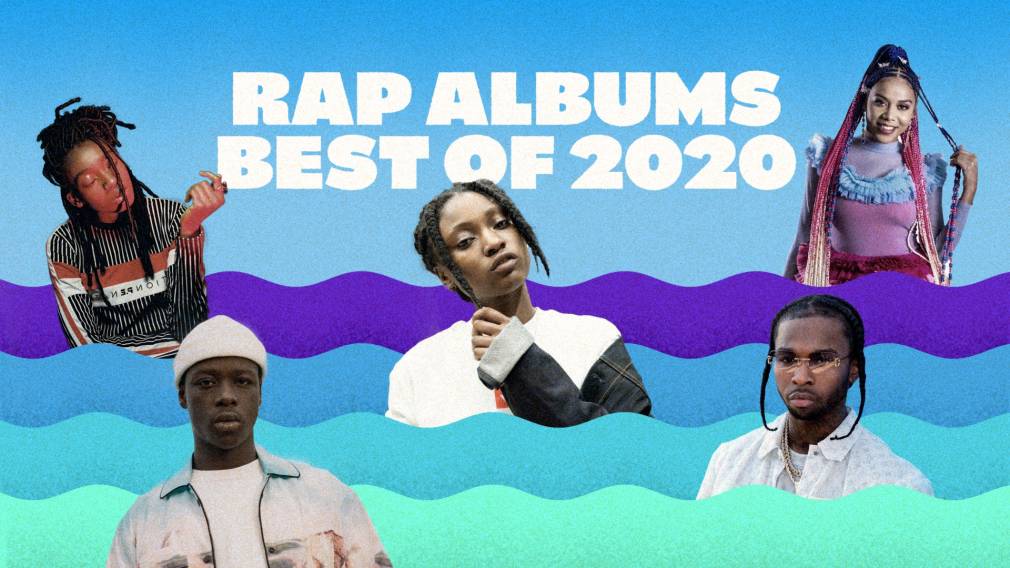2021 is fast approaching and with it the opportunity for PAM to look back on the best rap albums of the last year.
When the world stopped, rap went on. Neither the pandemic, nor state-imposed curfews, nor widespread social upheaval overcame its continual meteoric rise. And for good reason, rap is the receptacle of this perseverance, this instinct for survival, this urgency to live as well as the need to be heard. This is all the more important for pan-African rap, whose artists have largely proven their commitment to change through their support to the Black Lives Matter and End Special Anti-Robbery Squad (End SARS) movement in Nigeria. Rap from Africa and its diasporas has demonstrated that it has traction when it comes to asserting its identity, if only to meet a need for authenticity and a break from the trends of American hip-hop. New wave rappers are claiming their native languages, fusing genres with traditional music and exploring themes that give pride of place to the different cultures on the African continent. Even if the year has sometimes seemed interminable, the heavyweights of rap have still held out, knowing that the time we have is always too short. This year will at least have served to expand and enrich our listening habits. With this selection that the PAM staff have prepared, there’s plenty of time to squeeze the juice out of every piece.
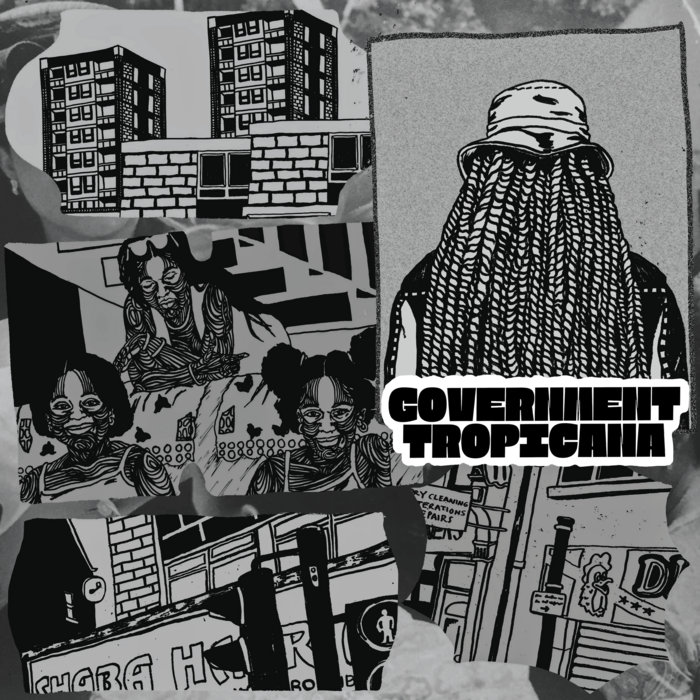
Lex Amor
Government Tropicana
When Lex Amor raps, everyone else shuts up. The walls come down and suddenly vulnerability sets in. Somewhere between rap and poetry, the Londoner reflects on her life by whispering introspective verses on the nine songs that make up Government Tropicana, a debut album recorded at home and that will shock you with its maturity. Travelling from one home studio to another whilst writing lyrics on the road, the British rapper of Nigerian heritage captures for us a moment in her musical journey and her state of mind. Exuding a disconcerting charisma as she moves to the music, Lex Amor has surrounded herself with talented friends and family, either for a couple of verses or to embellish her flow with their polished productions. Behind the delicate UK garage vibe of “Moesh”, the poignant “Plant Your Feet” or the shivers we feel listening to the magnificent “100 Angels”, each track tells the story of her own life through that of the first generation of Black workers who came to work in London. ‘The first thing that comes to mind is the multiplicity of communities that surrounded me’, she told us in an interview. Lex Amor looks at her own evolution in the cosmopolitan capital, far from her roots – which she honours by singing from time to time in Igbo, the language and dialect of eastern Nigeria. A true revelation, Government Tropicana is a small 30-minute masterpiece that disarms you as it reveals to you its secrets… – François Renoncourt
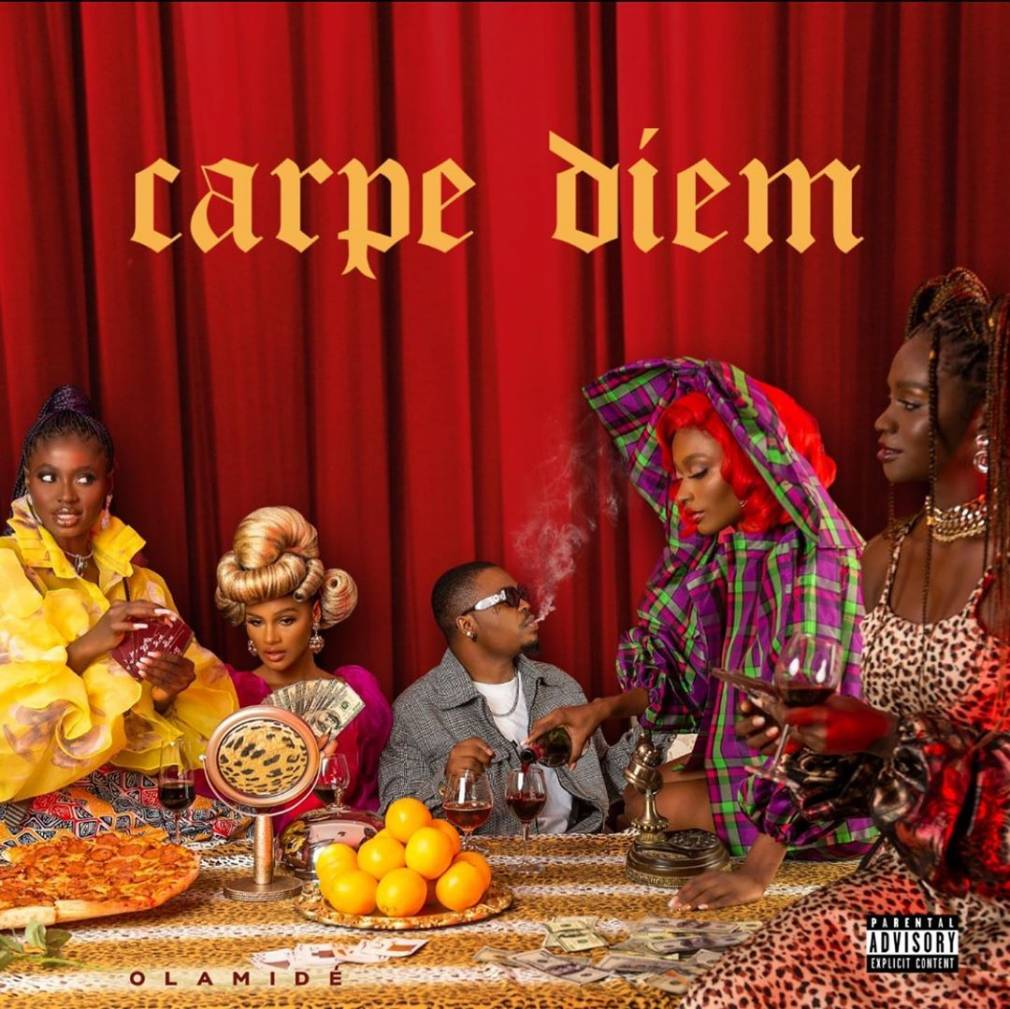
Olamide
Carpe Diem
Carpe Diem, Horace, 23 B.C.: “pluck the day as it is ripe”. Carpe Diem, Olamide Adedeji, 2020: “The mood is YOLO! I wanna live and limits are nothing, I just wanna do all the things that I wanna do and live my dream to the fullest”. That’s precisely what the 10th album of Nigerian Hip-Hop giant Olamide is all about. The superstar has had to build his career on fierce verses and harsh instrumentals (“Science Student”), but Carpe Diem is his album of serenity and calmness. To play hard and to be the toughest is no longer needed: he wants to sing, to have fun and to make the music he likes. This new attitude, the result of a long personal journey, is expressed in most of the tracks, from the soft “Infinity” to the triumphant “Eru”. The rapper, now head of a powerful label, also takes advantage of this positivity to showcase some of the most talented emerging artists such as Omah Lay, Bella Shmurda or Bad Boy Timz. – Nils Bourdin
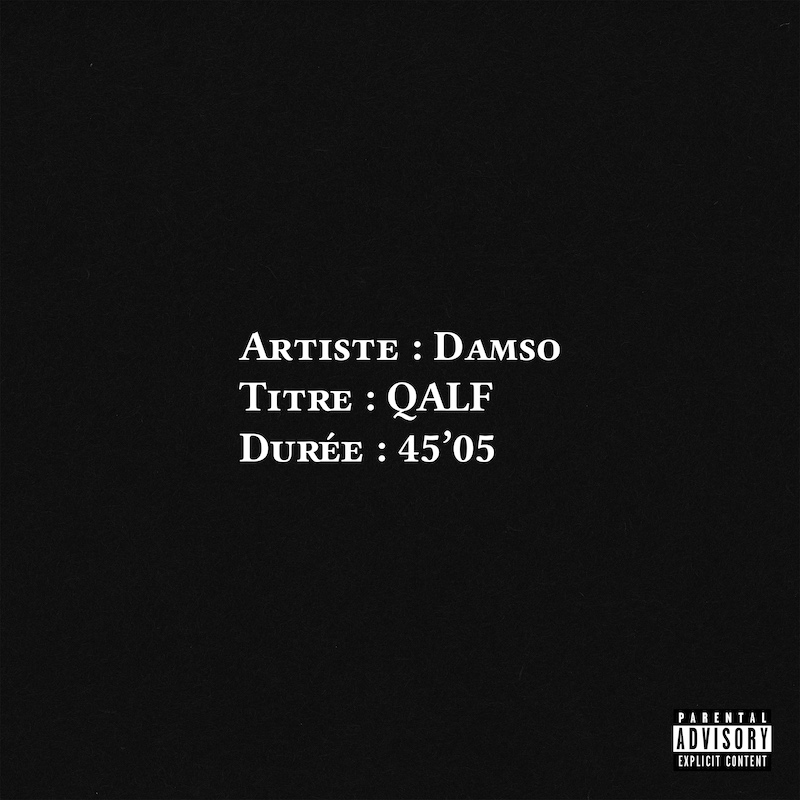
Damso
QALF
QALF: four letters that Damso’s fans have been lusting after since 2015. Four letters that suit them well, as they stand for ‘Qui Aime Like Follow’ (Who Love Like Follow). Whether at home in Belgium or France, or in his home country of the Congo, every rare release creates quite a storm. Two years after his last opus Lithopédion came out, he has finally released QALF without any video or promo, except for a mysterious poster campaign in the Paris metro that generated many unfounded theories, notably that of a double album. The 45 minute and 5 second masterpiece that we got was more than enough to satisfy, as the artist frees himself from his demons and gives way to his more sentimental, albeit slightly awkward, self. His family plays a central role as he talks about his relationship with his mother and the illnesses she’s faced, and about his fear of not being there for his son. In addition to Hamza, and Lous and the Yakuza who both feature, we also find the Congolese artist Fally Ipupa on one track where the two artists alternate between French and Lingala. – Thomas Bisiacco
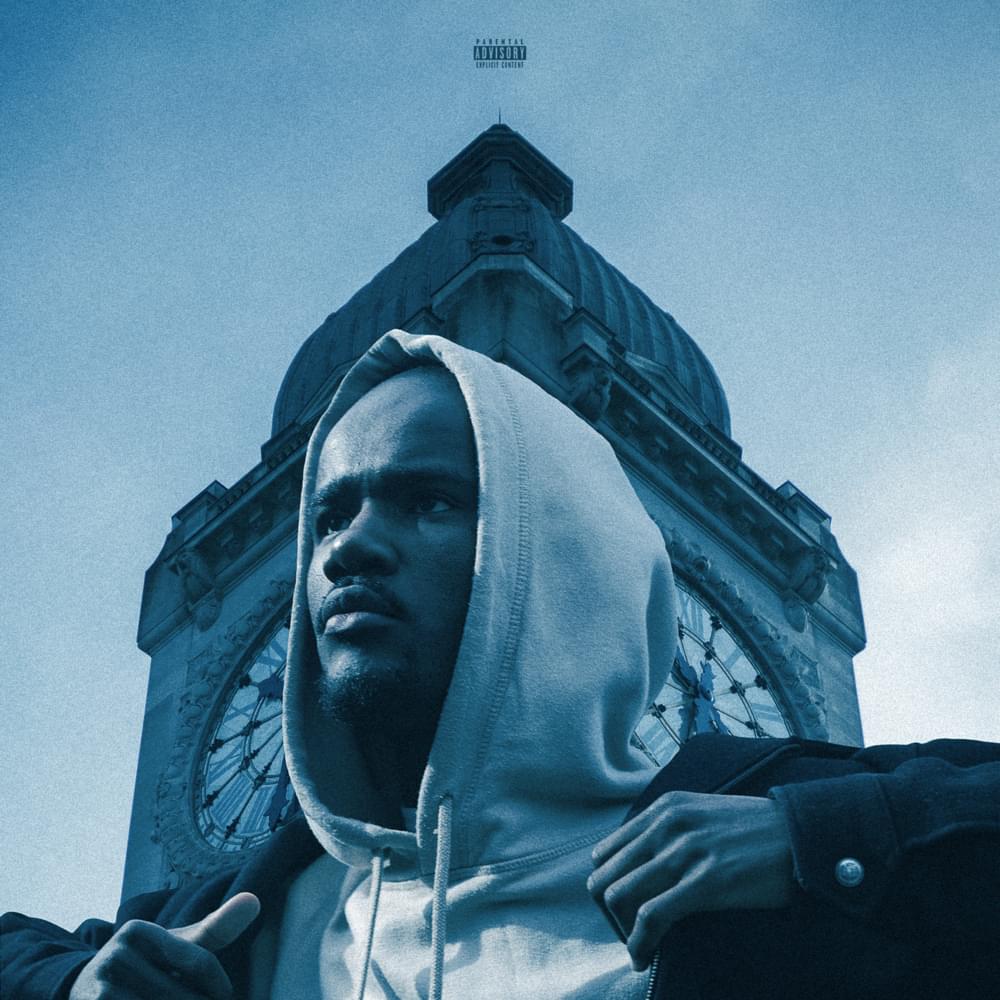
Gracy Hopkins
Encore (Time2020)
He might be rapping in English but that’s not to say that Gracy Hopkins, barely 23 years old, isn’t one of the most fascinating French rappers of his generation. He is the artisan creator of a universe that is something of a dream world. Whether his voice moves to realms of uncompromising trap or an ultra-ethereal RnB, Gracy Hopkins is already, at such a young age, a sort of delighted chameleon. With Encore(Time2020) – a re-release of his mixtape Time (2019) accompanied by a few unreleased tracks (including superb duets with the rapper from Tayc and the french singer Sabrina Bellaouel) and therefore making this his first album – the rapper from Torcy (a suburb of Paris) has finally stopped toying with us. At last he’s making his mark and giving depth to his musical identity. Originally from Brazil and Angola (he pays tribute to his roots from an instrumental point of view), with this first album he confirms his status as a genius of French rap whilst putting aside the conceptual flights of fancy that have characterised him up until now. – Makia Fofana
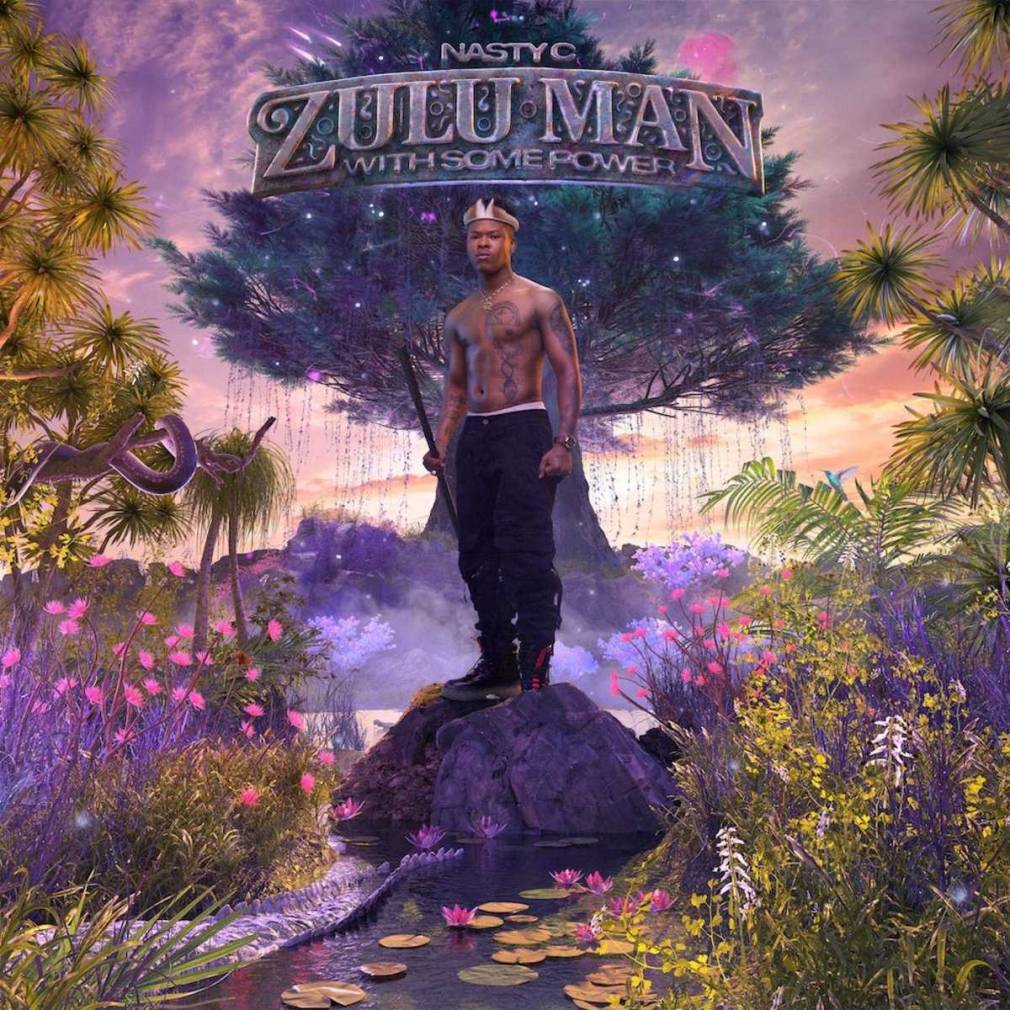
Nasty C
Zulu Man With Some Power
Despite the strangeness of the past few months, we can safely say that 2020 was the year of Nasty C. The 23-year-old South African rapper signed to Universal on the Def Jam Africa label, thus opening doors to the American market. Nasty C has forged a huge name and reputation in his home country thanks to his cutting edge style and his first two albums (Bad Hair and Strings and Bling). With Zulu Man With Some Power, released on 28th August, he’s seeking to position himself as African rapper number one. His lyrics are charged with his desire to succeed and to conquer the United States, whilst recognising the challenge it represents (“Overpriced Steak”). It is also an opportunity to look back down all the road he has travelled since his debut (“King Shit”). For this opus, Nasty C was given all the tools he needed to meet his ambitions, working with the cream of the crop of rappers coming from Atlanta (T.I., Lil Gotit, Lil Keed) as well as with Ari Lennox, one of RnB’s current reigning queens. As its title indicates, this album bears a strong political commitment, resonating with this year’s anti-racist movements. – Renaud Brizard
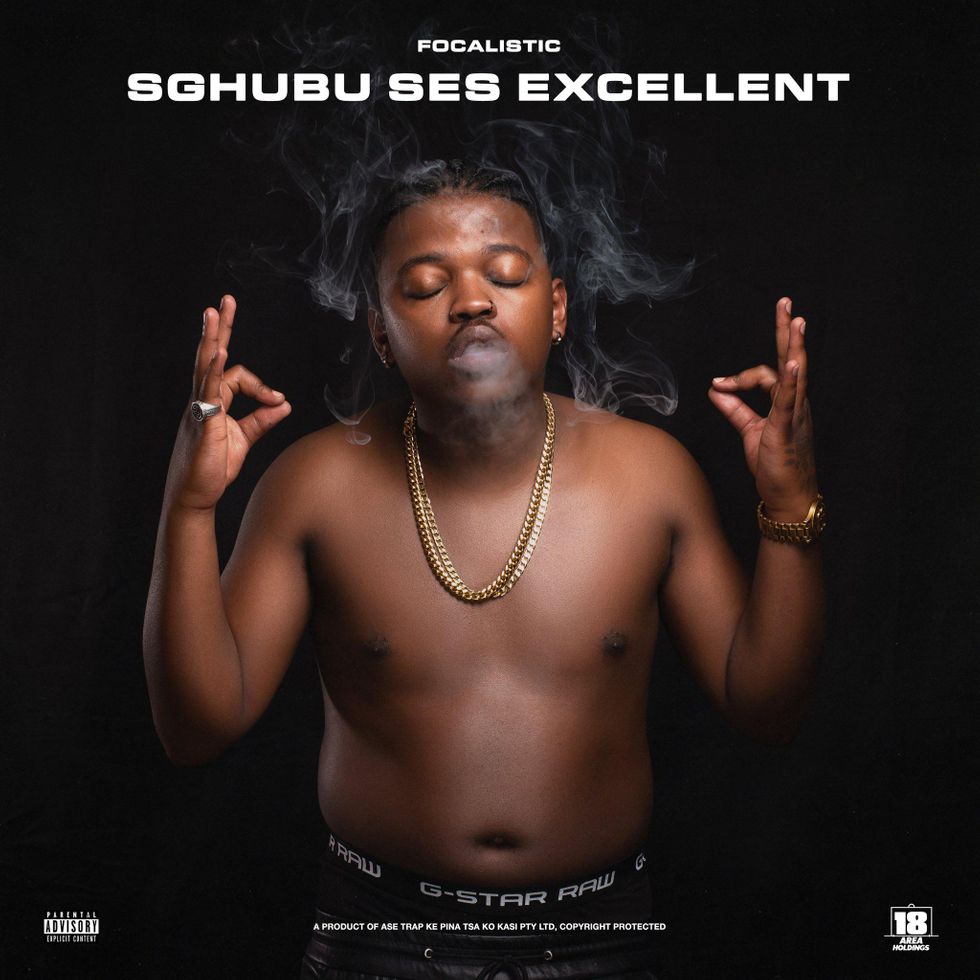
Focalistic
Sghubu Ses Excellent
It is difficult to deny that in South Africa, 2020 was the year of Focalistic. The Pretoria rapper bombarded his audience with hits from January to December, closing his season with the powerful “Sghubu Ses Excellent”. The ambition of the project? To raise street music to its highest level. Challenge accepted and won hands down. The sharp verses of the rapper, mixed with Amapiano productions from the top artists of South Africa, will clearly unite Hip-Hop fans with the electronic audience. From bangers to bangers, the EP sounds like a dark, dancing and hypnotic offensive, an invasion of the South African ghettos on the national airwaves. These same sonorities have also enabled him to export himself, taking him on tour in Nigeria and Zambia. Ranging from jazzy songs like “Billion” and oppressive hits like “Vrr Phaa”, “Sghubu Ses Excellent” perfectly represents the formidable ability of South African electronic music to constantly reinvent itself, crossing musical and social boundaries. – Nils Bourdin
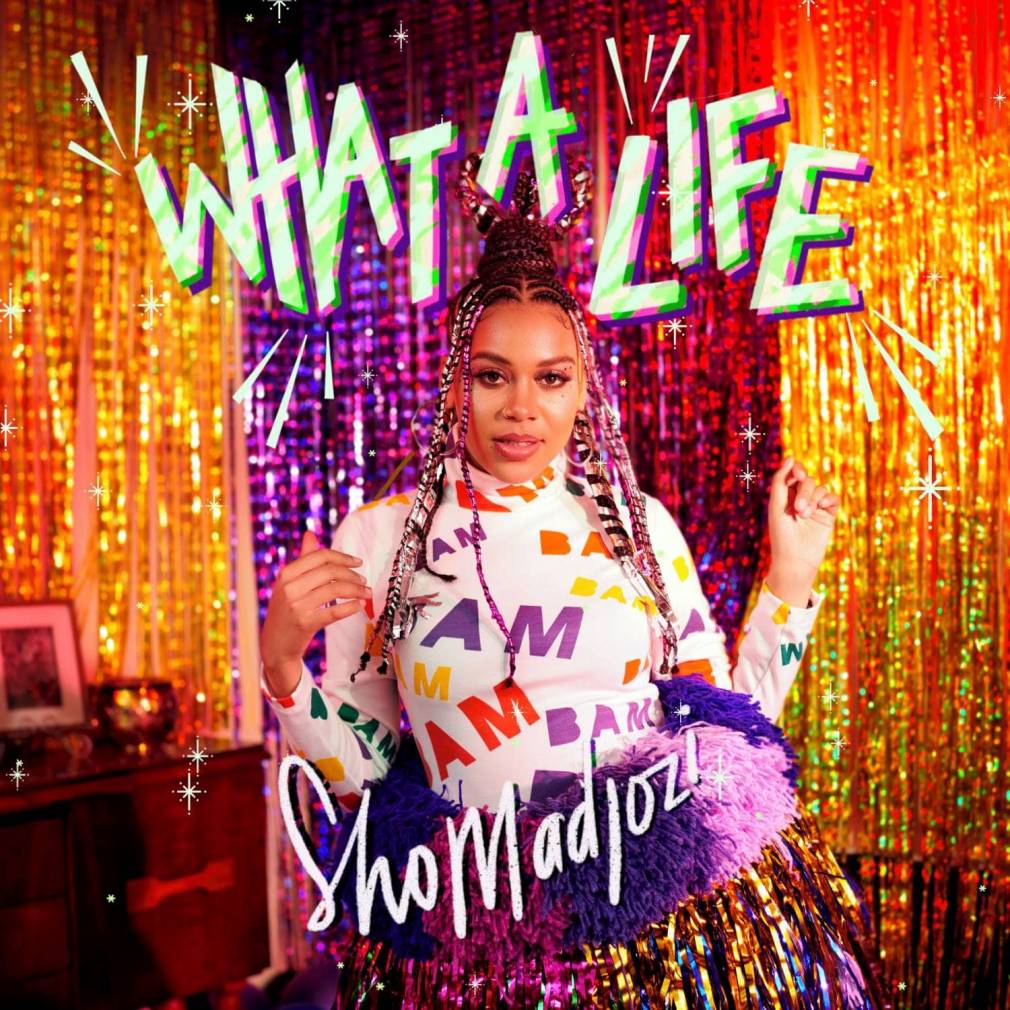
Sho Madjozi
What A Life
The most cheerful and colourful rapper from the Limpopo region will put a smile in your heart with this new mixtape, the aptly named What A Life. Its release was not a foregone conclusion however, as the radiant South African artist almost stopped everything after the tragic disappearance of her little sister last year. But thanks to the unfailing support of her fans and her own tenacity, she has begun to to overcome this terrible ordeal. The author of the hit song “John Cena” has made a stunning comeback, marked by unfailing optimism and the energy she communicates. These ingredients were already the strength of her debut album, the hard-hitting Limpopo Champions League in 2018. This time, Sho Madjozi shines the spotlight on her native province, favouring the euphoric frenzy of Shangaan electro, and thus highlighting the plight of the Shangaan ethnic group from the Tsonga population. At the crossroads of tradition and modernity, What A Life shines in its ambitious choice of not just using gqom or amapiano beats (although they are present) but by favouring this local genre and its frantic tempo. – Simon Da Silva
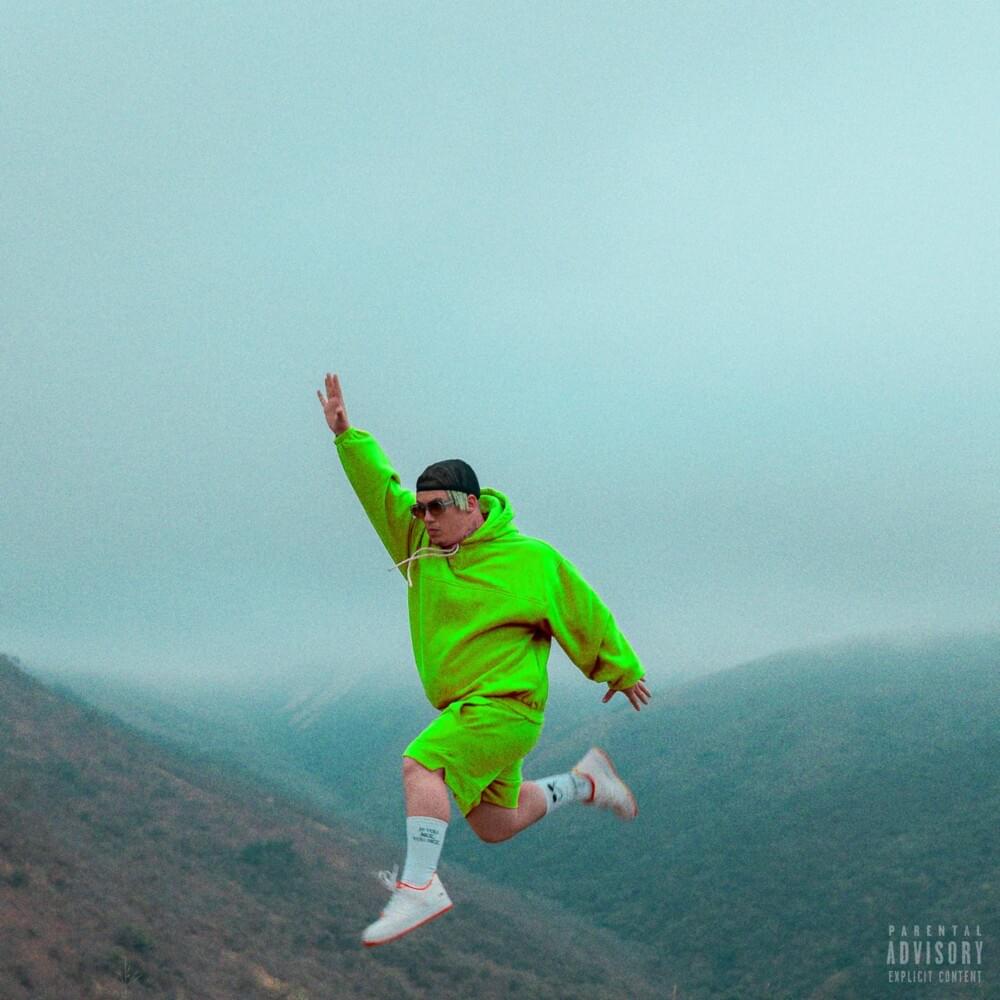
Costa Titch
Made In Africa
The Mpumalanga rapper, revealed by the hit “Nkalakatha”, capitalised on the incredible hype around him to unveil in October his first studio album “Made In Africa”. While in his country the music trend is slow, dark and dancing, Costa Titch went against the current of the movement by delivering an ultra-energetic and flamboyant project, in his image. The flashy and garish colours of the rapper’s aesthetics can be found in “Made In Africa” through the speed of the tracks, the explosiveness of the flows used and his Joburg Trap sound. The album is also a true celebration of South African Hip-Hop, represented by its multilingualism (isiZulu, Sesotho, English and Afrikaans) and its most worthy ambassadors (DJ Maphorisa, Sjava, Riky Rick, AKA, YoungstaCPT, Frank Casino…). Now at a new stage in his career, Costa also delivers more introspective tracks than usual (“Holy Rain”), while maintaining his cranky arrogance on many tracks (“Got it”, “Great”). Not having much to prove at home, the artist told us that he would like to extend “Made In Africa” to the whole continent by integrating rappers from elsewhere… – Nils Bourdin
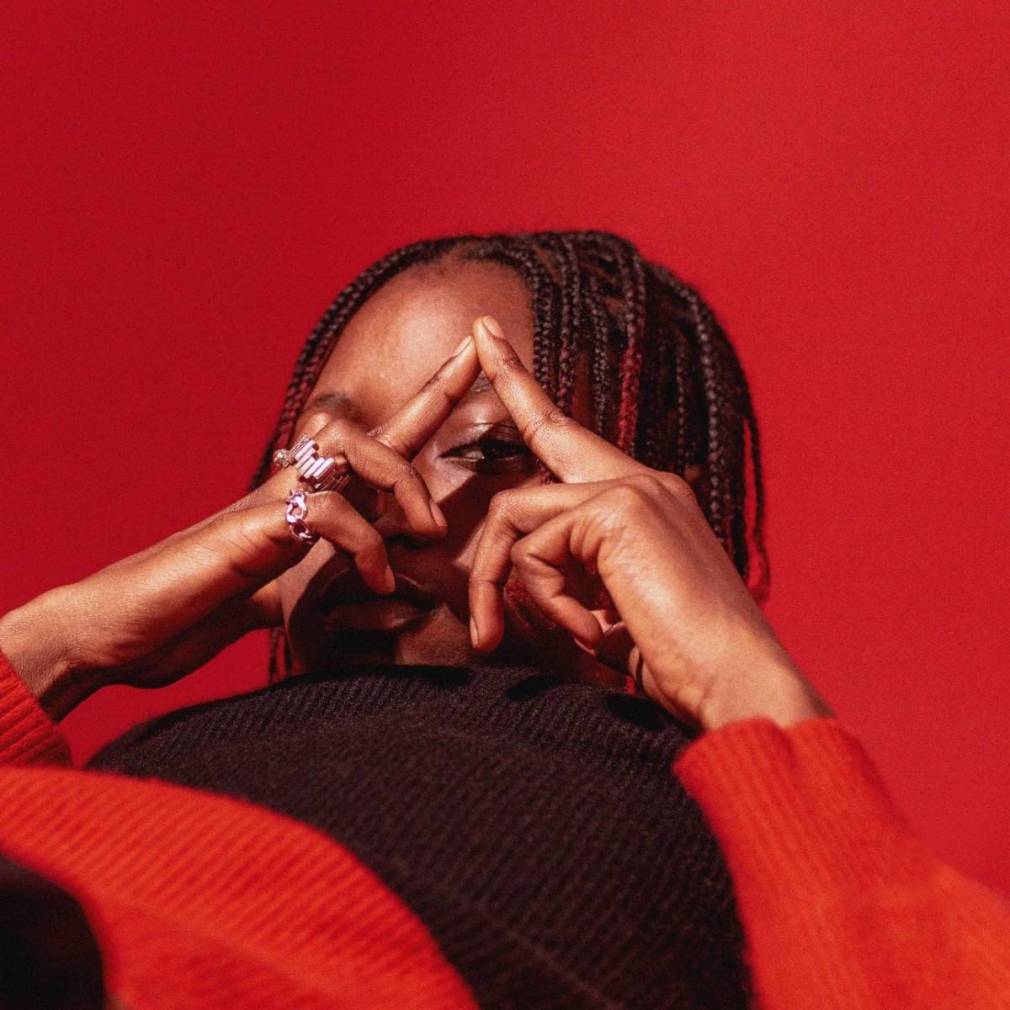
Flohio
No Panic No Pain
Her energetic flow unpacks at breakneck speed, carrying with it the biting poetry of her lyrics and an overflowing scenic energy. All who listen are caught up in the relentless power of Flohio’s music. Born in Lagos before and raised in South London (from the age of 8), it was the fast pace of life and the almost constant rain of the capital city that helped sketch and mould a style rooted in realism. Flohio is adept at soaking up different environments, from the London grime of the 2000s to avant-garde electronic sounds and good old-fashioned hip-hop. This inspiring mix has taken her up the ladder very quickly – the rapper now represents for the London scene what Jorja Smith embodies for the renewal of English soul-R&B. But to better understand Flohio’s record and her fraught themes, you have to go behind the scenes in Bermondsey, South London, with its brick factories, warehouses and disused docks only then will No Panic No Pain make sense. Doing so will transform its rhythms into metal strips and its synths into industrial vibrations. – Julie Denis
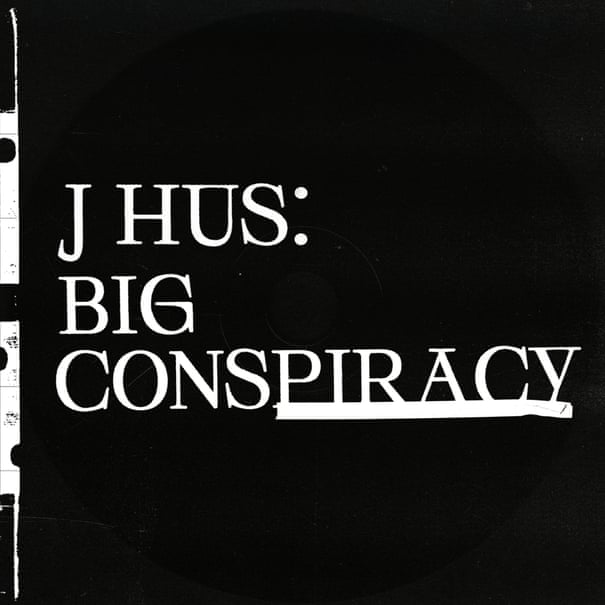
J Hus
Big Conspiracy
Paranoia, regret, an overwhelming sex drive, cultural uprooting, and a sense of self-esteem are the themes that occupy the Stratford rapper’s thoughts on his second album. After a stint in prison between 2018 and 2019, Big Conspiracy opens a new chapter in J Hus’ career. His rap has become deeper and the man has definitely matured, as is evident in his candid and moving conclusion “Deeper Than Rap”. Throughout these 14 tracks the Londoner is trying to find his way and become a man. He has been striving for years and now only aspires to a better life, which is the reason for his undulating afrobeats prayer “Peace, Love and Prosperity”. Architect of this eclectic (to say the least) opus, the beatmaker JAE5 synthesises the sounds of the black diaspora and jumps from one genre, one mood, one continent to another with a disconcerting flair. All this is backed up by the significant input of others who’ve contributed to this record’s success, the co-producers iO and TobiShyBoy. Well supported, but with a mind that’s still tormented, Big Conspiracy is the remarkably told story of a gangster playboy (or the other way round) who takes his destiny into his own hands. – Simon Da Silva
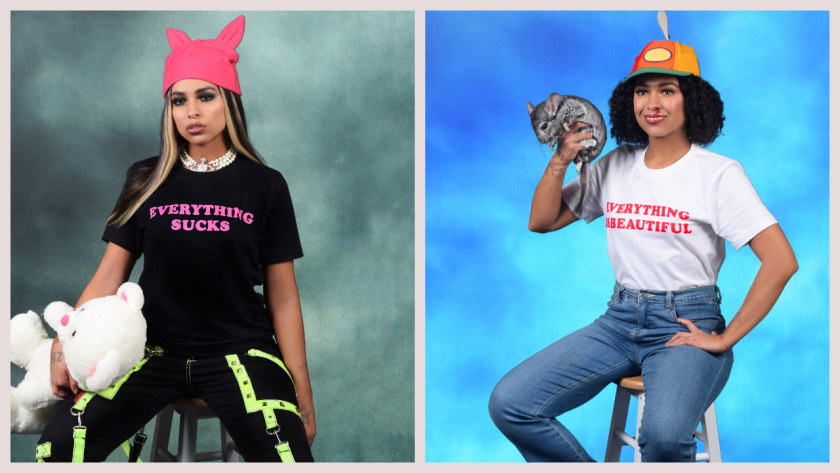
Princess Nokia
Everything is beautiful / Everything sucks
This double album was made in the image of Princess Nokia’s astrological sign, Gemini. As she sings in her self-portrait piece, “Gemini,” performed at the COLORS studios: “I am Gemini, June 14. All famous rappers have a sign like mine, all famous rappers have a heart like mine, but I know I am different and they are not quite me.” Inspired as much by the sensual flow of soul jazz as by the aggressiveness of rap and electronic riffs, the New York artist owns her temperament in all its uniqueness. With this new project, completed in just one week, Princess Nokia also embraces her multiple identities: Afro-descendent, Puerto Rican, feminist, LGBT and continues to develop her half-angel, half-devil journey, constantly opening unsuspected doors. – Julie Denis
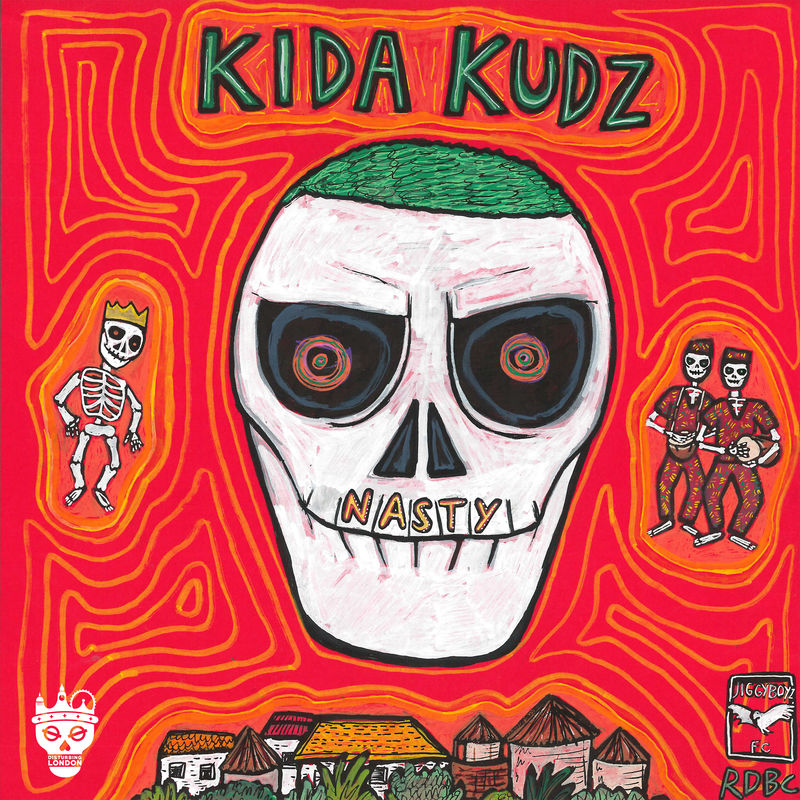
KIDA KUDZ
Nasty
While he can boast of having converted the legend of Grime, Wiley, to Afro the time of a song , the Nigerian Kida Kudz started 2020 by delivering his first mixtape on platforms: Nasty. Him who sees England as his second home is the ambassador of Afroswank. A style that mixes the groove of afrobeats with darker and hip hop sounds, like the deeply languorous “No Pride”.
With this project, Kida Kudz declines her recipe by marrying it with other influences. Like the association of a piano sample and a beat worthy of Brooklyn on “Big Up” or the talkbox that reminds the great hours of the West Coast on “Flex X6”. Proposing a musical universe that can lead to introspection or trigger an inevitable swaying of the hips, as on “Yeye Riddim”, with its imposing flow, Kida Kudz offers a beautiful business card testifying to the richness of her Afroswank. – Rémi Benchebra
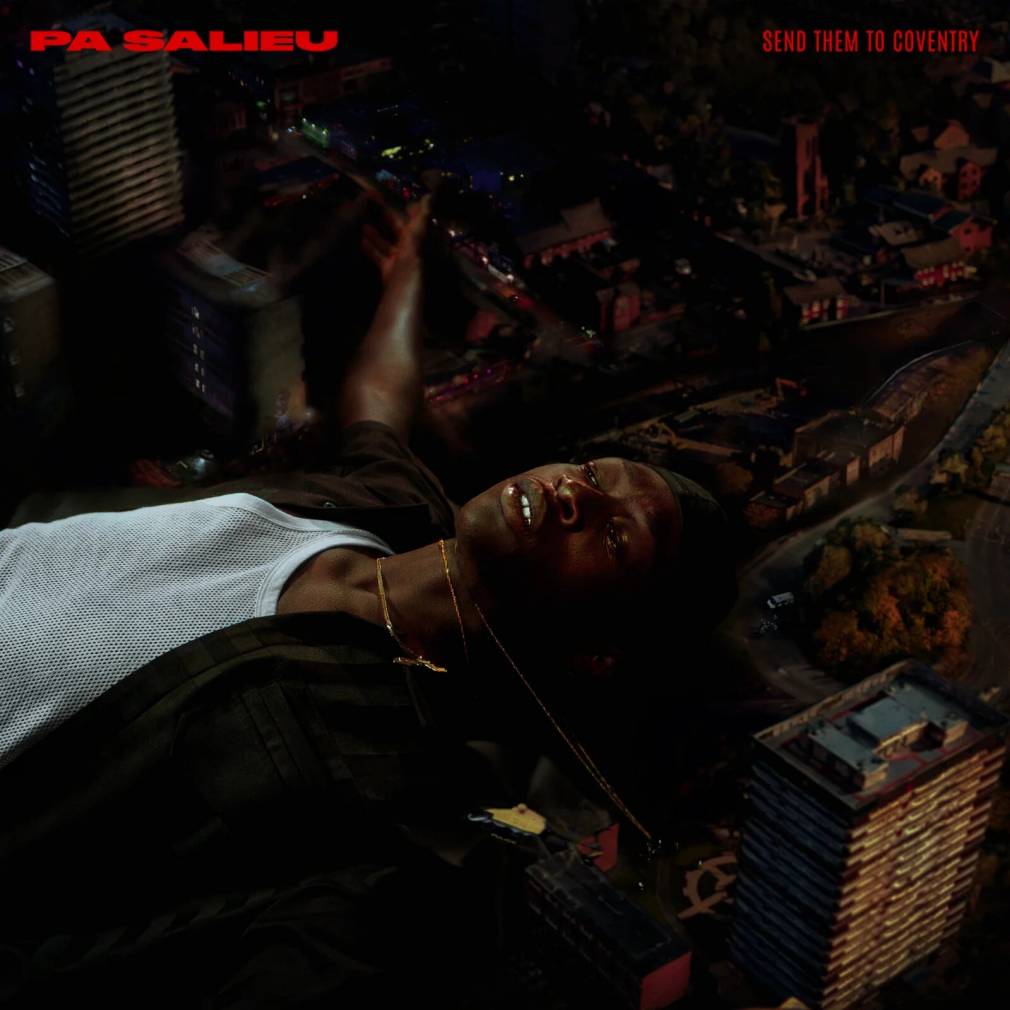
Pa Salieu
Send Them to Coventry
Even if this young man considers his first studio production as ‘a first mixtape, a first step’, Send Them to Coventry is still an uppercut in the jaw. In early 2020, he made a name for himself with “Frontline”, a song written in 20 minutes that flooded the web and quickly became the anthem of Coventry’s slums. In addition to becoming a voice of the people, Pa Salieu has made his way into the UK charts in the space of a few months, resulting in this resolutely urban album that spares us the exaggerated overly autotuned clichés of the genre. Very attached to his West African roots, he lands his punchlines with unique musicality on productions that oscillate between dancehall, UK drill, and afroswing. Tracks like “Block Boy” and “No Warnin’” in particular have made their mark this year. Watch out – the British-Gambian rapper, who recently survived a bullet to the head, had only just begun his stratospheric rise at the beginning of the year; with this unmissable debut album his head is already poking through the clouds. – François Renoncourt

Little Simz
Drop 6 EP
‘If I give you my time and give you my space / Know that that shit’s not to waste’. It is with this explicit warning that Little Simz’s EP Drop 6 begins. After being nominated for the Mercury Prize for her album Grey Area in 2019, the London-based rapper and producer took stock of her situation. A rapper who hesitated to get back to writing for fear of disappointing her audience, took advantage of the confinement to set the gears back in motion and now gives us five incisive tracks. Although it starts out big with an all-encompassing UK garage rhythm – ‘You ain’t seen no one like me since Lauryn Hill back in the 90s, bitch” – from the second track, the more stripped down production leaves some room for sensitivity: ‘Know your limit, know your worth, know personal space’. In “damn right” the rapper returns to her inner journey – ‘I tried the mosque and I tried the church / Now I’m just spiritual’, before saluting her Nigerian roots – ‘Jollof in an ice cream tub / that’s the Af’ in me’ on “you should call mum”. The EP ends with a collaboration with London-based Alewya Demmisse, on “where’s my lighter”. There she reveals her questions – ‘Who do I trust? / Who do I love?’ before reassuring those who wonder about her intentions: ‘I’m focusin’ on my next masterpiece.’ We can’t wait. – Thomas Bisiacco

Pop Smoke
Shoot for the stars, aim for the moon
Pop Smoke, Brooklyn’s favorite son and leader of the new wave of Brooklyn drill, was tragically murdered during a home invasion on February 20th, 2020. He leaves behind two extended mixtapes Meet the Woo and Meet the Woo 2 as well as a posthumous album Shoot For The Stars Aim For The Moon whose deluxe version was released on July 20th for what would have been the rapper’s 21st birthday. The album debuted at No. 1 on the Billboard 200, a first in hip hop for a posthumous album debut and joins the likes of 2Pac, Biggie and more recently, XXXTentacion and Juice WRLD.
While Pop Smoke may have embodied the subgenre superstar, garnering the undivided love and appreciation of his locale, the artist was poised for international stardom. The deluxe version of Shoot For The Stars Aim For The Moon includes 15 new tracks including two collaborations with Nigerian superstars Davido and Burna Boy. These features are a further testament to Pop Smoke’s unabashed importation of sounds into the New York scene and his global ambitions. Fans who are inspired by the continued flirtations between African musicians and American hip-hop will surely be disappointed that we won’t get to see what would have been with the outgoing Pop Smoke and artists off the continent.
R.I.P. Pop Smoke and thank you for the short lived but massive legacy of music. – Christian Askin
Listen to our Pan African Rap playlist on Spotify and Deezer.
